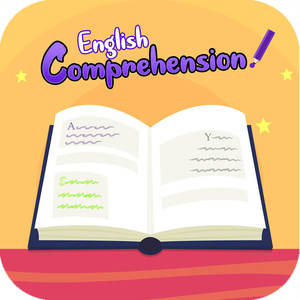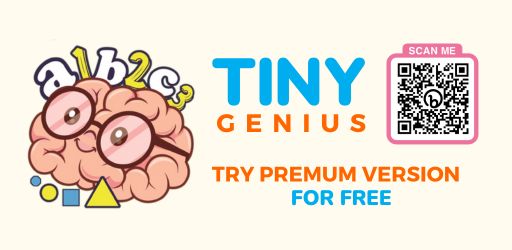12 Reasons Why Online Learning is the Future of Education
More and more young people are finding that remote education is much more convenient and effective. "I don't have to ask my parents to write a paper for me or help with my studies as I can cope with everything myself," says a middle school student. The quarantine and total lockdown because of Covid-19 has demonstrated that online learning in schools and universities is possible We've highlighted the main reasons why online learning is gradually supplanting traditional schooling. Study this question carefully, and perhaps you will be able to look at education from a different perspective.
Types of online learning
There are several types of online schooling. First of all, there are individual and collective forms. In addition, there is asynchronous learning (that is, students send completed assignments and receive feedback, but they do not have a definite study schedule). Online education is based on the same principles as classical education. Homework and classwork, interaction with the teacher, grades — everything is the same, but without desks, school uniforms, and lunchboxes. For example, in the British Harrow School Online, students' load is neither less nor more than in a regular school. They study as much as in a traditional private school. That is, five hours of basic classes and two hours of extracurricular classes a day, as well as additional classes in the format of personal communication with a private tutor. There are seven forty-five-minute lessons per subject per week, of which two are in a group of 10-12 students live with the teacher.
Benefits of Online Education
● A flexible study schedule. Perhaps, this is one of the main advantages of an online school. It is especially convenient for young athletes, musicians, and actors who are not comfortable with the standard curriculum;
● More opportunities for gifted children. If in a regular school they are forced to study at the same pace as everyone else. With online learning, they can work at an individual pace, ahead of their classmates;
● Comfortable environment for students with disabilities. The remote format gives a wider choice of schools because not all educational institutions have inclusive education opportunities;
● Development of independence. Students devote more time to independent training on materials developed by professional educators. Thanks to this, students learn to approach the case consciously and responsibly. These skills will be useful to them in their adult lives.
● Freedom of access. Another advantage of e-learning is that it is not tied to a specific location. It doesn't matter where a student is — in Europe, Asia, the States, or New Zealand. All that is needed for learning is a computer or tablet with Internet access. With online learning, knowledge is available from anywhere in the world, and it makes education accessible. Our children can already enroll in a foreign school without having to move to another country. All of this gives freedom of choice, which in the coming decades will be almost limitless!
● Cost efficiency. If it is necessary to buy school stationery, school uniforms, textbooks, and a rucksack during traditional education, e-learning does not provide any of the above expenditures. All textbooks and manuals are digital, and you can study even in your pajamas;
● High-quality knowledge. The ordinary school does not guarantee the quality of knowledge — much depends on a particular teacher or school administration policy. The plus of online education is that you choose teachers, textbooks, the program. Respectively, knowledge will be of higher quality than when studying according to imposed standards;
● Online courses are more individualized. If you suddenly feel that your question will be stupid, you can always ask it personally in correspondence with the teacher. If you miss a class, you do not miss anything and can review everything a little later;
● Also, unlike traditional training, online courses offer a huge variety of formats, which allows you to find the most effective way to consume information for everyone. This includes live broadcasts, the use of VR\AR technologies, chatbots, videos, infographics, and special programs for practical assignments;
● Interacting with the best professors. Not everyone can travel to the capital for admission to popular universities. Travel entails a huge cost, and competition for a place is enormous. Today, most universities have prepared various disciplines in the format of remote courses. Therefore, it is realistic to get knowledge from experienced professionals and have a diploma from a prestigious university, without leaving the walls of your own home;
● It is possible to identify your child's weaknesses while studying and work on them. Methodologically strong online lessons, students' work on special learning platforms transparently show the picture, in which subjects the child is brilliant and where there are significant gaps. This can come as a surprise to parents who previously voiced their dissatisfaction with the school as a whole or to teachers about their child's lack of success in a particular area of knowledge;
● Self-education skill. Learning to learn is a top skill not just for the future, but for the here and now. Education experts are convinced that in 2030, learning will be a continuous process. Therefore, the current generation of students has an opportunity to pump up this skill by learning more on their own in a properly organized remote learning environment.
In terms of digital trends, the future of education is in gamification and virtual and augmented reality technologies. And there are really a lot of possibilities. For example, the Chicago Historical Museum and the Chicago Institute have released an app that allows you to see what the place the user is in looked like many years ago. And Case Western Reserve University and the Cleveland Clinic have created a three-dimensional environment to study anatomy. As more people prefer online education over traditional offline courses, it's not hard to predict the future of the education systems worldwide.

Improve your Child's Reading Comprehension Skills Through an App!
Reading Comprehension Fun Game helps parents and students improve reading skills and ability to answer questions. This English Reading Comprehension App has got the best stories for kids to read and answer related questions!









